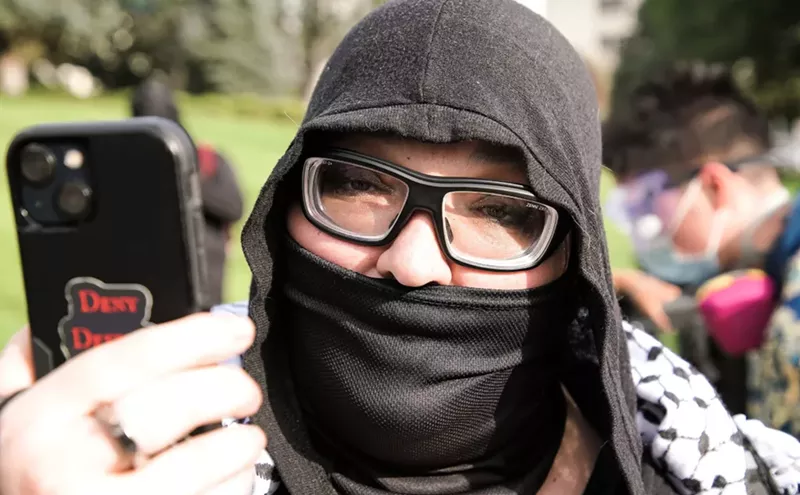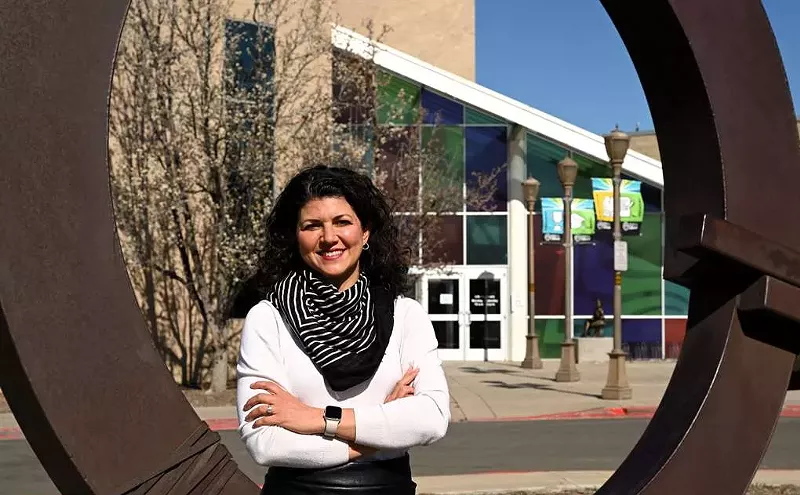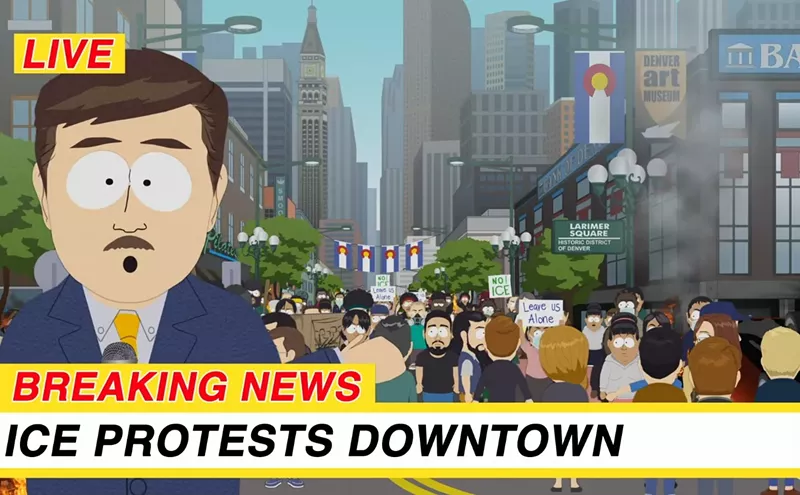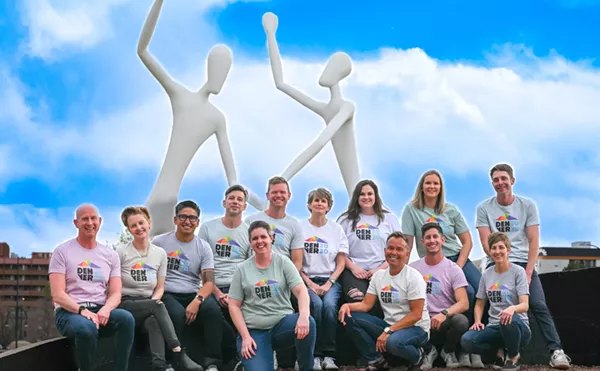The 13th Annual Colorado Women of Color Conference on HIV & AIDS is under way, and Latif and about twenty African-American women have gathered for "Sharing Black Men: The Low Down on the Down Low," a workshop that explores why some men have secret sex with other men -- and how it puts women at risk. Latif makes the women act out a role play, where they pretend they're asking their husbands and boyfriends if they've ever been on the DL. When they leave the conference, they're to go home and do it for real.
"The key is to be assertive but not aggressive," Latif says. "You want to ask open-ended questions. You don't want to accuse. The point is to find a way of communicating.
"HIV is about secrets," she continues. "What we do and don't tell our partners makes all the difference. But a lot of times we don't want to talk about issues that impact our lives."
As a term, "the down low" got a boost in the media last year when it was covered by everyone from The New York Times Magazine to Oprah Winfrey, who devoted an entire show to it. According to data from the Colorado Department of Health and Environment, there's more to it than just hype. Though men who have sex with men still account for the vast majority of HIV infections, rates among women have doubled over the past fourteen years, and nearly half of all new infections can be traced to heterosexual sex between men and women. Women of color have been hit hardest by the upswing -- especially African-American women.
Latif has made a mantra of the fact that black women are still at risk of contracting HIV even when they're in committed, monogamous relationships. "I'm not trying to get you to imagine that all men are sleeping with other men," Latif tells the women. "But you've got to talk about these things to get that real trust. Otherwise there's no way to know if your man is prayin' on Sunday and cruisin' Colfax and Cheesman Park on Saturday."
Latif is the executive director of It Takes a Village, a program in Aurora that provides HIV outreach and testing, support groups and counseling to African-American men and women. It Takes a Village also does outreach to black men who have sex with other men -- whether they're openly gay and bisexual or living on the down low. In August, the center started a new support group for such men, though so far they've seen few joiners.
"We've had clients who come in here two, three, four times before they'd ever talk about having sex with other men," Latif says. "Within the black community, there is zero tolerance for homosexuality. You've got a huge church influence. People feel that they can't come out."
Cultural barriers work against efforts to protect Latinas, as well. Through the Heart of a Woman program, Juana Soto of the Colorado AIDS Project works to educate women about the threat they face from HIV. "A lot of them don't consider themselves to be at any risk," Soto says. "They'll say, 'I'm not a prostitute. I don't use drugs.' When we talk to them about men having sex with men, they are often shocked by what we tell them. They learn about the joys of the bathhouses, stuff like that. But there's still a barrier. The feeling is, 'Maybe some men, but not my husband.'"
That's what Jennifer, a Chicana in her thirties, used to think about her husband. Nine years ago, she was diagnosed with full-blown AIDS after giving birth to the couple's fourth child. The baby did not carry the virus. "My husband made me believe that I got him infected, when he was the one who got me infected," Jennifer says. "I found out things about him when he was starting to get real sick. He was on the down low. He would shoot heroin. He had a secret life. He slept with other women and men.
Today Jennifer does community outreach, trying to make women of all ages and races understand that HIV is not over -- and it isn't a disease that strikes just gay men, or prostitutes, or drug users. Once a week, she attends a support group for women living with HIV/AIDS through Sisters of Color United for Education, a longstanding program that takes a holistic and spiritual approach to keeping Latinas healthy.
"When a woman finds out she's HIV-positive, she's not sure what she got infected by, especially if she's in a relationship," she says. "She needs some kind of support to talk it through, to get through. If I didn't have that support, I probably would have died."












